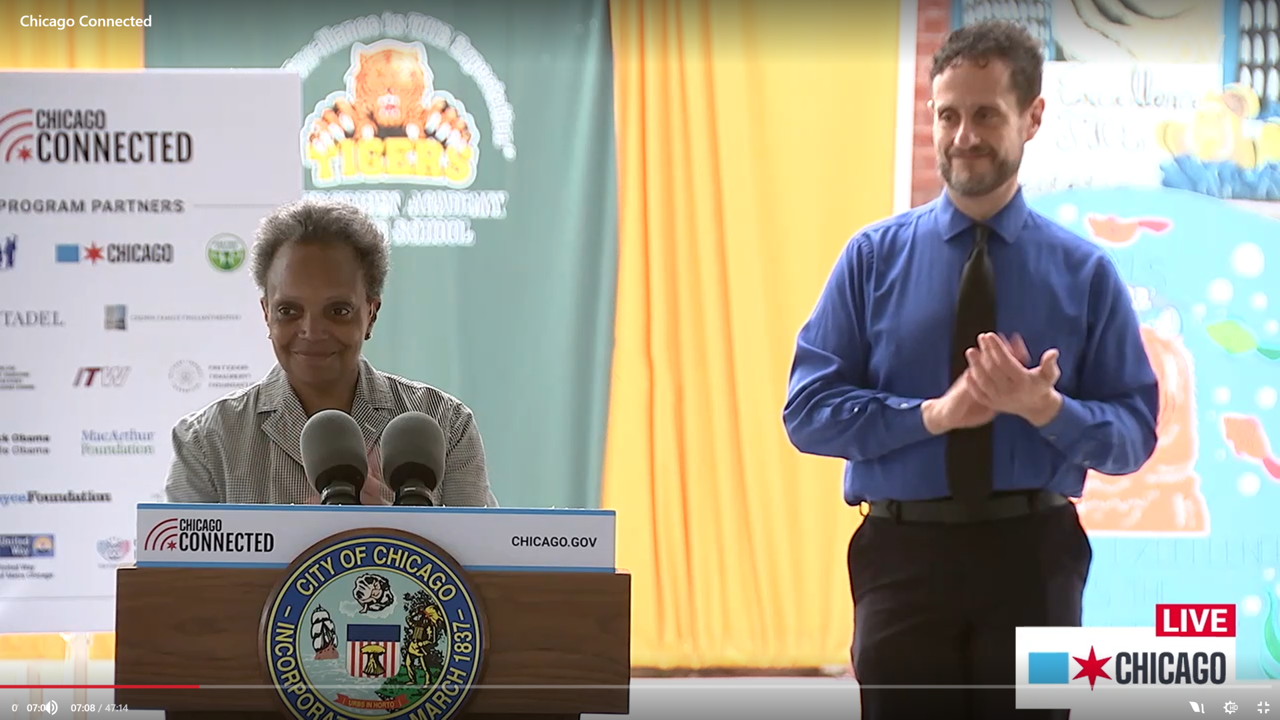Chicago, IL 2022 Finalist
The internet is not a luxury, it is a necessity for everyday life. Being connected to the internet allows families to work remotely and access essential services related to health care, food, housing, employment and education.
When Illinois schools closed in mid-March 2020, the education nonprofit Kids First Chicago (K1C) started making phone calls, reaching out to Chicago Public Schools (CPS) families to find out how they were doing and what they needed. CPS parents shared that they didn’t have adequate internet or devices and they struggled to get their families connected to an array of supports and services. To better understand the magnitude of the issue, K1C and the Metropolitan Planning Council (MPC) dug into publicly available census data and released a joint report, Digital Equity in Education in the Coronavirus Era, in late April 2020. The report found that roughly 1 in 5, primarily Black or Latinx/a/o, children under age 18 lacked in-home internet.

Mayor Lori Lightfoot announces the launch of Chicago Connected
Launched in June 2020, Chicago Connected is a groundbreaking, multi-year program to close this digital divide. Chicago Connected provides high-speed internet for up to 100,000 students for four years by directly paying for internet service for families that are most in need, using six priority indicators and data from Internet Service Providers (ISPs) to identify eligible households for the initiative.
The City of Chicago provides strategic leadership and financial management and serves as the lead convener for the initiative. CPS manages day-to-day operations, including eligibility selection, general marketing, data and reporting. K1C provides project management guidance and evaluates program impact. K1C also elevates the perspectives of communities and families in the design and continuous improvement of the initiative, facilitating ongoing engagement with 35 community-based organizations (CBOs) citywide. United Way of Metro Chicago serves as a fiscal agent for Chicago Connected, coordinating payments on behalf of households to ISPs, who then provide internet service directly to enrolled families.
Participating CBOs supplement outreach with a particular focus on the hardest-to-reach households and provide newly connected families with digital literacy training and skills development curriculum. Additionally, the program partners with the Chicago Housing Authority (CHA) to market the free service to K-12 families in CHA residences.
Digital equity is not achieved solely through internet adoption, so Chicago Connected also launched a digital learning platform. Enrollment in Chicago Connected includes free access to online portals with classroom curricula, training materials and thousands of assessments, all available in self-guided and in-person formats, to build and test computer skills. Additionally, a compilation of free digital learning resources is available on the Chicago Connected website.
Most recently, Chicago Connected partnered with Coursera, one of the largest online learning platforms, to deliver world-class content in multiple languages. Coursera learners are also offered a range of job support services following completion of industry-recognized certificates.
This unique partnership has already connected nearly 64,000 students and provided high-quality digital learning content to Chicago Connected families, helping CPS parents and caregivers better navigate the pandemic through their newfound connectivity.
By the Numbers
Share This Story